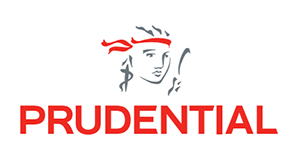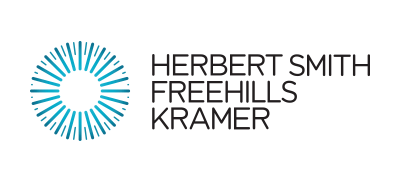TRADE & INVESTMENT
Please note that this website was created and last updated in 2019, and so information on this site may now be out-of-date.
INTERNATIONAL CONTEXT
As described in the Sierra Leone At A Glance section, the GoSL encourages FDI. Sierra Leone’s schedule in the WTO’s GATS details the full list of restrictions. These cover a range of professional services, auxiliary transport, internal waterway and rail transport and qualifications for establishing an insurance firm or a bank. Requirements imposed on foreign investors in these sectors take various forms and can include the establishment of partnerships or joint ventures with Sierra Leoneans, a minimum amount of assigned capital (usually twice that of a local firm), and a minimum number of years’ experience in the relevant business.
Trade relations between Sierra Leone and the EU are governed by the Generalised System of Preferences (the GSP). The GSP removes import duties from products coming into the EU single market and for Sierra Leone’s imports it applies on an “Everything but arms” (EBA) basis. The EBA scheme grants full duty free and quota free access to the EU Single Market for all products from Sierra Leone (except arms and armaments). Sierra Leone’s EBA status will not be lost if it enters into a Free Trade Agreement with the EU.
Sierra Leone is eligible for preferential trade benefits under the United States African Growth and Opportunity Act (AGOA). AGOA allows low-income countries to access the US market on favourable trade terms. Whilst AGOA has been in place for nearly 20 years, Sierra Leone has not historically maximised its potential for accessing the US market. The GoSL, with UNECA and the International Growth Centre (ICG), has developed The Sierra Leone National AGOA Response Strategy 2019 to 2025 (the AGOA Strategy). The AGOA Strategy is designed to enable the private sector to grow and increase exports to the US market by making the necessary policy and regulatory changes.
The Treaty of Lagos established the Economics Community of West African States (ECOWAS) on 28 May 1975. It consists of 15 members states (Benin, Burkina Faso, Cape Verde, Cote d’Ivoire, The Gambia, Ghana, Guinea, Guinea Bissau, Liberia, Mali, Niger, Nigeria, Sierra Leone, Senegal and Togo). ECOWAS is subdivided into two smaller blocs: the West African Economic and Monetary Union (UEMOA); and the West African Monetary Zone (WAMZ).
UEMOA, established in 1994, consists of primarily French speaking countries (Benin, Burkina Faso, Cote d’Ivoire, Guinea Bissau, Mali, Niger, Senegal and Togo). UEMOA share a customs union and a currency union. WAMZ, established in 2000, consists of primarily English speaking countries (The Gambia, Ghana, Guinea, Liberia, Nigeria and Sierra Leone). WAMZ are working towards establishing a currency union.
Through its membership of the broader West African community, Sierra Leone has concluded a number of international agreements with the EU and the USA. These agreements form part of a strategy to reduce barriers to trade and increase flows of investment into West Africa, signalling a more positive approach towards foreign investors from the EU and USA.
Examples include:
- Economic Partnership Agreements, which are trade and development agreements negotiated between the EU and African, Caribbean and Pacific regions. The EU has recently concluded an Economic Partnership Agreement with the West African countries which covers trade in goods and services (including provision for further negotiations) and contains other investment and trade-related rules. Aside from Nigeria, all 13 West African countries have now signed the agreement. Nigeria is required to sign it for it to come into provisional application. To come into force, the agreement will have to be ratified by all EU Member States and at least two thirds of the West African states. It is noted that the UK is a major trading and investment partner for Sierra Leone, and further that at the time of writing, the UK is due to leave the EU on or before 11pm on 30 October 2019 (commonly known as “Brexit”). Should the EU-West Africa EPA be applied provisionally or come into force before Brexit, it is unclear whether the UK and Sierra Leone will be able to continue to trade and invest in reliance on its terms following Brexit.
- The USA has signed a Trade and Investment Framework Agreement with ECOWAS. The US Government describes the Trade and Investment Framework Agreement as providing a mechanism for expanding trade and investment both between the US and the 15 ECOWAS member states, and also across the entire ECOWAS region.
- The USA is currently exploring a potential framework trade agreement with the MRU.
As a net importer, imports include rice and cars and top exports include ores (mainly iron and titanium), diamonds and cocoa beans. Key trading partners include China, Belgium-Luxembourg, the Netherlands, Romania and the US.
Sierra Leone is a member of the WTO and Sierra Leone’s MFN tariff rates are applied to other WTO Members. This has not been affected by the implementation of the ECOWAS CET, as the CET rates are within Sierra Leone’s WTO binding commitments. Imports from other MRU states are duty free.
Customs clearance for imported goods was simplified in the early 2000s. The Customs Act 2011 further reformed import and export requirements, providing clarification to what was previously a complicated and time-consuming process. The Customs Act is administered by the Department of Customs on behalf of the NRA, headed by a Commissioner-General, and outlines requirements for imports and exports in terms of reporting, transfer, origin and calculation of transfer value. Customs valuation in Sierra Leone is broadly based on the Agreement on Implementation of Article VII of the GATT 1994.
The Customs Act outlines the power of the Department of Customs to establish customs zones and ensure that all relevant information is easily available to interested parties. The Customs Act also gives interested parties the ability to apply for an advance binding ruling on the tariff classification and methods for the determination of origin and valuation.
As a part of the NRA’s “modernisation programme”, the ASYCUDA++ is being replaced by ASYCUDA World, an improved computerised customs management system covering most foreign trade procedures, transit and suspense procedures. ASYCUDA allows for direct trader input, increasing efficiency and lowering clearance time. DFID has been providing assistance to the NRA to support Sierra Leone’s implementation of the modernisation programme, with a particular focus on improving the NRA’s governance and organisational capacity, including in the Department of Customs. A pilot process has already taken place, and the 2019 Finance Act is expected to enable the implementation of the ASYCUDA World system by the end of 2019.
REGIONAL CONTEXT
MRU nationals benefit from full equivalency or “national treatment”, meaning that they are treated in the same way as Sierra Leone nationals and are not subject to any of the restrictions found in the WTO’s GATS.
With limited exceptions, “national treatment” is also generally granted to ECOWAS nationals. It should be noted that the definition of “national treatment” has not been formalised at a domestic level, so there may be some uncertainty as to its scope within the domestic legal framework.
In July 2018, Sierra Leone signed the African Continental Free Trade Agreement (ACFTA) and in November 2018 was ratified by its Parliament. The aim of the ACFTA is to increase trade liberalisation and coordination across Africa and create a single continental market for goods and services. In April 2019, the ACFTA received the last of the 22 signatories needed to bring it into force and it will take effect in July 2019.
DOMESTIC CONTEXT
The Investment Promotion Act 2004 (IPA) is the foundation of the legal framework for foreign investment in Sierra Leone.
Under the IPA, the majority of business sectors are open to foreign ownership. Only a small number of industries are subject to statutory ownership restrictions. As mentioned above, the main restrictions on FDI into Sierra Leone lie in the services sector.
Entry limitations apply to the maritime and airport services sectors preventing foreign persons or firms from holding licences for clearing or forwarding air or sea freight cargo operations. These facilities are delivered directly by the GoSL through the Ministry of Transport and Aviation.



